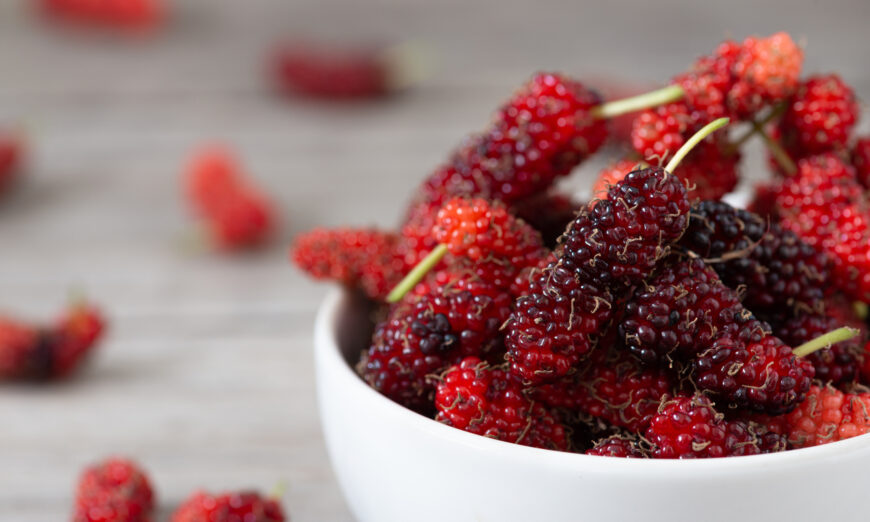
The research team from KIOM, Korea Institute of Oriental Medicine, recently discovered that ingredients from mulberry barks can suppress COVID-19 virus infection.
Studies published in Nutrients and International Journal of Molecular Sciences found that compounds from mulberry twigs effectively inhibit COVID-19 infection. The clinical research has completed its technology transfer and entered a commodification stage.
Mulberry Is a Treasure From Nature
For thousands of years, mulberry trees have been used as a medicinal herb across China, South Korea, and other countries. Mulberry twigs are dried young branches of the mulberry tree (Morus alba) and widely used for treating arthritis pain, stroke, partial paralysis, edema, athlete’s foot, and skin irritation.
In Western medicine, mulberry branches are considered diuretic, anti-inflammatory, antibacterial, and antiviral, and they help prevent the development of cancer.
In the previously mentioned studies, the South Korean research team confirmed that two components in mulberry twigs, mulberrofuran G and kuwanon C, effectively block the process of viruses from penetrating host cells during the initial stage of COVID-19 infection.
Mulberry Prevents COVID-19 Infection
Once entering the human body, the coronavirus binds the angiotensin-converting enzyme 2 (ACE2) receptor of human epithelial cells and penetrates the host cells through the spike protein on the virus’s surface.
Through clinical experiments, the research group found that both mulberrofuran G and kuwanon C attach tightly to the spike protein and ACE2 receptor, effectively preventing the mutual binding of the spike protein and ACE2 receptor.
Additionally, the research team verified through cell experiments that mulberrofuran G and kuwanon C could inhibit infections of simulated viruses and the actual coronavirus. It blocks host cell penetration in the initial stage of COVID-19 infection.
Mulberry Suppresses Drug-Resistant Viruses
At present, COVID-19 therapeutics approved by the U.S. Food and Drug Administration (FDA) include viral RNA replication inhibitors in small molecule form, such as remdesivir and Paxlovir. There are also virus cell osmosis inhibitors which are macromolecule based.
However, some new coronavirus variants are resistant to RNA-replicated inhibitors, and as antibody therapeutics, they can only be administered intravenously.
Dr. Choi Jang-Gi, a professor of Korean medicine application center, Korea Institute of Oriental Medicine, told Korean media NEWSIS that the COVID-19 virus uses RNA as its hereditary material. Therefore, the virus would most likely develop antimicrobial resistance—an occurance in which microorganisms mutate and become resistant to previously effective drugs.
Choi Jang-Gi said, “Using Mulberrofuran G and kuwanon C as osmosis inhibitors, in conjunction with currently available and approved RNA replicated inhibitor therapeutics, will improve the recovery rate against COVID-19 virus, as well as suppress drug-resistant viruses from emerging.”